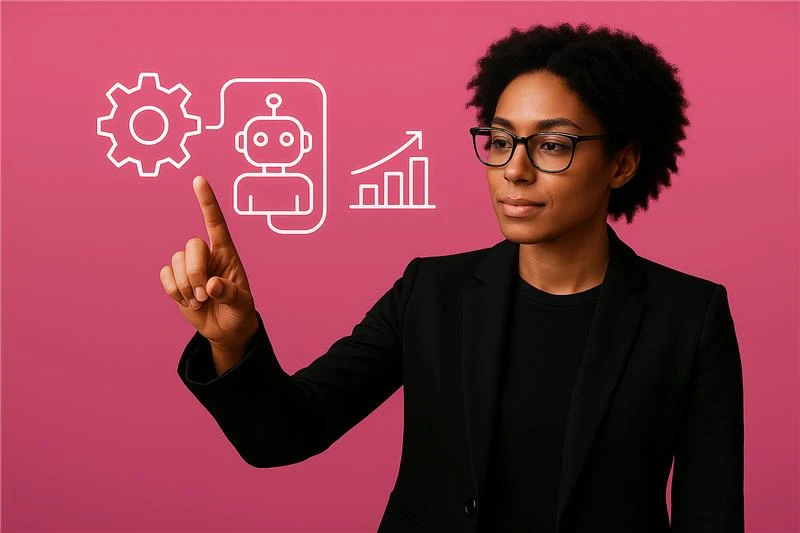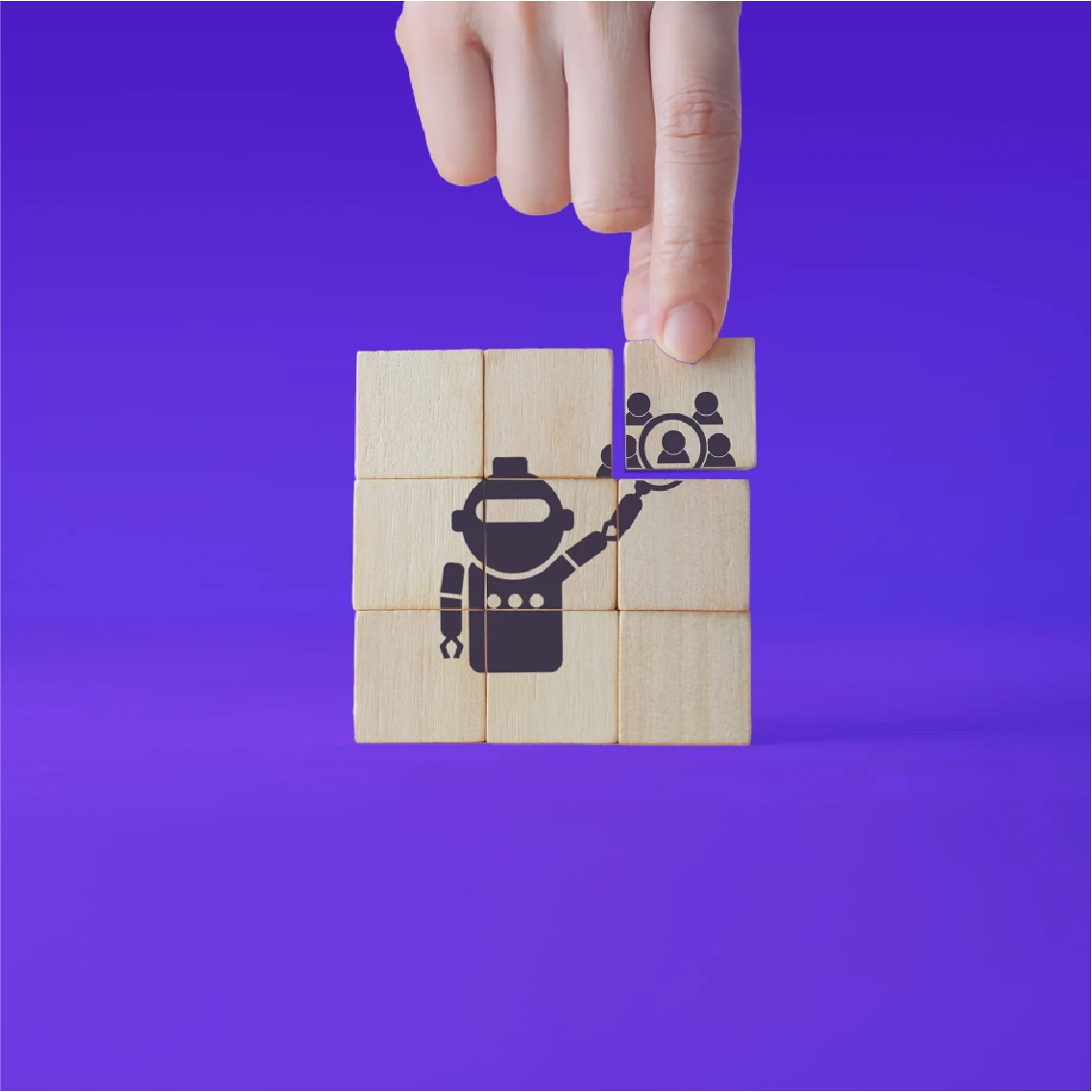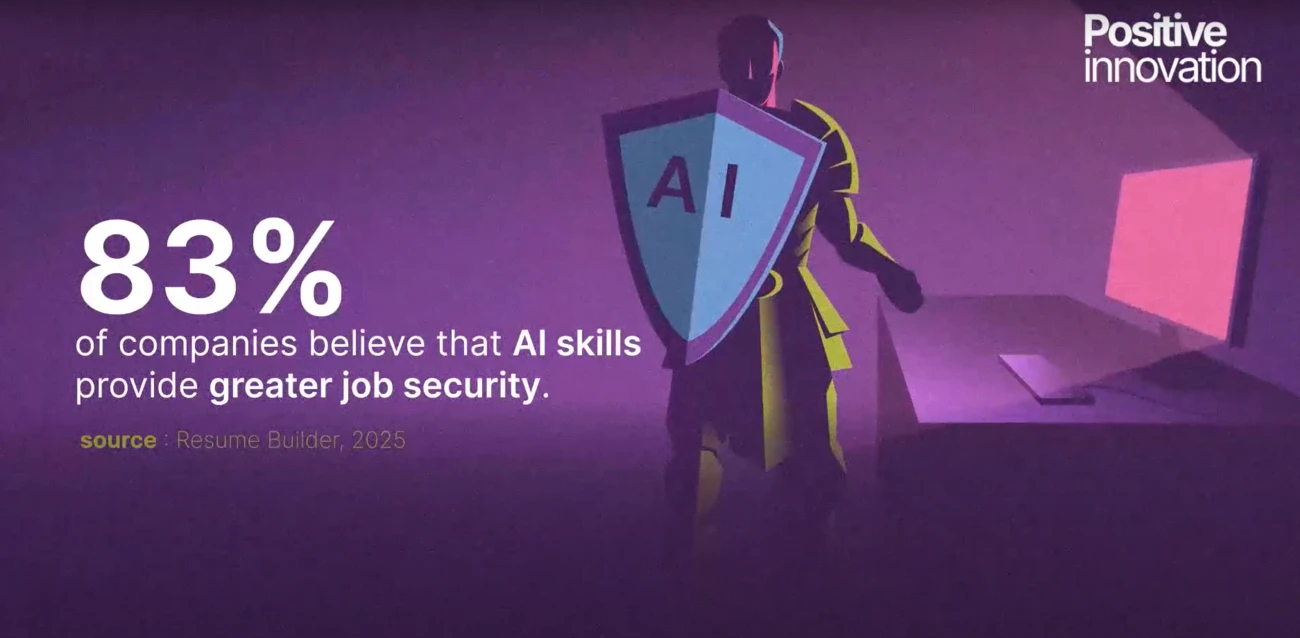
AI agents: work reinvented
AI agents are shaping the future of work
Let’s work together with AIForget for a moment the artificial intelligences that discover new drugs, spot exoplanets at the edge of the universe, or beat chess champions. Another revolution is underway - quieter, more mundane, yet just as decisive.
A growing number of companies are integrating intelligent “agents” that now handle time-consuming, low-value tasks: sorting résumés, scheduling meetings, drafting summaries, or replying to emails. Simple missions - sometimes boring, perhaps - but essential.
These so-called “agentic” AIs, which are capable of working in coordination, are not meant to replace humans but to integrate into teams like a new kind of colleague (one that is consistent, emotionless, never sick...), taking on the most tedious jobs and enhancing everyone’s capabilities thanks to their exceptional computing power.
You may already be using them without knowing it - hidden in an HR application or a project management tool.
This feature invites you to explore the world of these agents - the embodiment of a practical AI that is profoundly transforming our professional lives and opening a new chapter in the world of work. How are companies adopting them? What new roles are emerging from this shift? How are teams adapting? Should we fear them - or learn to collaborate with them? A look at a future that is already unfolding.
AI enhanced HR
Unilever, a global consumer goods giant, is seen as a pioneer in integrating agentic AI into its core business processes, from supply chain to R&D and human resources. The company is now deploying AI agents at several key stages of its HR cycle.
First steps toward agentic AI: rethinking recruitment
As early as 2016, Unilever adopted an innovative approach to hiring young graduates by combining several autonomous analysis and interaction technologies. Among them, Pymetrics evaluates candidates’ cognitive, emotional, and behavioral aptitudes through mini-games, and HireVue is a video interview platform that analyzes verbal responses, gestures, tone, and facial expressions.
The multinational claimed to have cut recruitment time by nearly 75 %, going from several months to just two weeks, while also improving the diversity of profiles selected.
But this automation raises questions: how do candidates feel when a machine becomes the first point of contact? The acceptability of such practices remains a sensitive issue, highlighting the need to maintain human involvement in final decisions. In fact, in response to criticism, HireVue removed its facial analysis feature in 2020.
A more mature AI for talent management
Unilever, which employs around 125,000 people worldwide, now relies on AI to promote internal mobility and enhance the employee experience.
With the Gloat (InnerMobility) platform, each employee can be offered cross-functional assignments and internal projects that match their skills and aspirations. This “internal talent marketplace” aims to improve employee retention, increase organizational agility, and better leverage internal resources.
At the same time, conversational agents automate responses to common HR queries (payroll, leave, administrative formalities), while social analytics tools examine employee feedback via internal surveys. The goal: strengthen listening, detect early signs of disengagement, and free up time for HR teams.
Augmented, not replaced, HR,
This transformation is profoundly redefining the role of HR at Unilever. Once seen as an administrative function, it is now shifting toward a strategic role focused on human development and value creation.
The promise is to enable HR professionals to concentrate on what matters: managerial support, skills development, and nurturing company culture.
But this evolution requires real upskilling: data literacy, understanding of technologies, and the ability to collaborate intelligently with these systems.
In response to legitimate fears of dehumanization, Unilever asserts a commitment to ethical and responsible practices. AI remains a decision-support tool, never the sole decision-maker. The augmented but not replaced human being remains the cornerstone of an employer-employee relationship based on trust, fairness, and personal growth.
Wally, Walmart’s GenAI assistant
Walmart, the world’s largest retailer, has introduced Wally, an assistant developed using its internal data and designed for sellers on its marketplace. With generative AI, sellers can ask natural-language questions (about stock, product performance, pricing, etc.) and receive instant, personalized answers. The American giant plans to continually improve Wally and eventually make it autonomous, enabling it to directly carry out actions such as adjusting assortments or launching promotions.
Source: Walmart
JPMorgan brings AI agents to Wall Street
The well-known American bank has launched the LLM Suite, an in-house GenAI tool designed to support its financial analysts. This smart assistant can write investment memos, summarize complex documents, and generate ideas. The initiative is part of JPMorgan’s broader strategy to integrate AI agents, helping employees to better navigate compliance policies and analyze market trends in real time.
Source: Forbes
With Siemens, digital colleagues on the factory floor
German industrial engineering giant Siemens is deploying AI agents that are capable of understanding human language and analyzing data from production lines to assist operators. These autonomous assistants can detect anomalies, recommend adjustments, and even initiate corrective actions without human intervention. By integrating them into existing systems, Siemens aims to gradually guide teams towards a working model where collaboration between humans and AI becomes the norm.
Source: Siemens
Unilever’s experience illustrates both the promises and the challenges of agentic AI applied to HR

Of machines and men
The rise of AI agents in our professional lives is gradually reshaping the playing field. Are they allies or rivals?
Digital copilots
At work, AI agents -these digital copilots - are becoming part of everyday tools: browsers, messaging apps, office suites, management software. They draft emails, schedule meetings, translate in real time, and extract key data.
According to a Microsoft survey, 75 % of knowledge workers already use AI. It helps them save time (90 %), focus on more important tasks (85 %), be more creative (84 %), and enjoy their work more (83 %).
By learning from users to become more relevant and adapting to different contexts, these tools are increasingly resembling true assistants.
Human-machine synergy
Rather than replacing humans, AI agents enhance their efficiency. By offloading routine tasks, they free up time for higher-value missions: strategy, creativity, customer relationships.
The collaboration can even be symbiotic: AI generates content, which the human refines, nuances, and... humanizes. This kind of teamwork, known as “hybrid work,” is based on complementarity: speed and endurance on the AI side; judgment, intuition, and social intelligence on the human side.
Toward substitution?
Still, this coexistence is not without tension. In high-pressure sectors, agentic AI can become a lever for workforce reduction.
When a machine handles 90 % of customer service requests, what’s left for people to do? In knowledge professions such as journalism, law, or financial analysis, AI challenges the value of certain once-scarce skills.
As AI agents become more capable, the temptation to replace human workers increases. This raises major economic, social, and ethical concerns.
Deployed at scale - without needs, rights, or protections - these agents challenge the balance of the labor market, employee rights, and the way people derive social value and purpose from their work.
While employees’ feelings toward AI remain mixed, several reports, such as one from BCG, show that adoption and trust in intelligent systems grew in 2024.
No, more a redefinition of roles
The real challenge isn’t resisting AI but rethinking roles. This means developing hybrid skills that combine technological fluency with human qualities - empathy, creativity, curiosity, critical thinking - and learning how to collaborate with machines.
Organizations that succeed in managing the positive impact of these innovations won’t be those that pit humans against AI, but those that orchestrate this cooperation.
AI agents can become powerful amplifiers of expertise (a study shows that AI is used to augment human capabilities in 57 % of cases), provided their deployment is accompanied by genuine strategic and ethical reflection.
AI agents, partners or rivals? That’s up to us.
With AI, a more human manager
The arrival of agentic AI in companies is profoundly transforming the manager’s role. Managers are now expected to oversee hybrid teams, orchestrating smooth collaboration between humans and autonomous agents. They must also develop new skills, strengthen their emotional intelligence, and rethink their leadership style. Paradoxically, the human dimension is becoming more essential than ever.
A new managerial reality
With the rise of AI agents that are capable of suggesting, deciding, and even acting autonomously, the manager's responsibilities and skill set are evolving. Some decisions can now be automated or suggested by algorithms.
This “shared authority” demands informed trust: welcoming AI recommendations with discernment, without surrendering critical thinking or decision-making responsibility.
It requires managers to have a functional understanding of AI systems - knowing what they are, grasping their capabilities and limits, interpreting their outputs, and spotting potential biases or errors.
As Fast Company, a leading U.S. innovation and tech magazine, reminds us, “leading AI-augmented teams requires far more than technical adaptation. It demands deeper humanity - curiosity, ethics, emotional intelligence, and meaning.”
AI may generate fear and resistance in the workplace: feelings of obsolescence, loss of purpose, uncertainty about one’s role. Managers must acknowledge these concerns, explain, and reassure. Their role in guiding change is more critical than ever.
AI agents do not replace a manager’s ability to inspire, understand human emotions, or navigate interpersonal dynamics. On top of that, the manager now acts as a human-machine mediator ensuring smooth, balanced collaboration.
A hybrid humanistic leadership
In AI-augmented teams, the challenge lies in managing hybrid intelligence: an enhanced cognition that blends human intuition with algorithmic power. As Psychology Today notes, “the greatest performance gains happen when humans and intelligent machines work together amplifying each other’s strengths while offsetting their weaknesses.”
This article introduces the concept of “hybrid humanistic leadership,” developed by doctoral researcher Cordelia C. Walther: leaders equipped with dual literacy emotional intelligence and understanding of AI systems that are capable of cultivating this hybrid intelligence.
Staying on an ethical course
Who is responsible when things go wrong? How can we maintain employee motivation when machines seem more efficient? How do we ensure fairness and transparency in an automated environment?
In addressing these questions, the manager plays a crucial role in upholding ethical balance and workplace well-being. They must exercise critical vigilance in the face of morally neutral systems, while preserving space for human expression.
It becomes clear - though perhaps paradoxical - that rethinking tomorrow’s management means imagining a more strategic, cross-functional... and deeply human role. As AI takes over functions such as planning, resource allocation, and performance tracking, managers must double down on the areas where machines can’t compete: creativity, empathy, moral judgment, and the ability to make meaning.
The manager of tomorrow will know how to conduct the human-machine symphony

